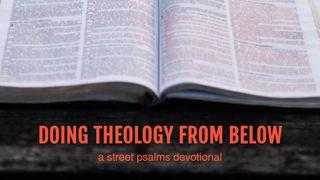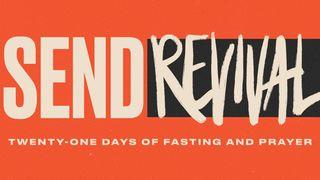Learning to Abide in Your Christ Given Identity Sample

Day 5 Righteous, Self-Righteous, Unrighteous
Do We Get Righteousness Wrong? Consider this common scenario. After a careful study of the Scriptures, a new believer rightly determines that he needs to pursue righteousness. But how should he go about this? First, he cleanses his life of anything that causes him temptation. Second, he analyzes his relationships and identifies the people in his life who would benefit his journey by being good examples. He also notes the people who could potentially, either knowingly or unknowingly, sabotage it. He then makes a point to nurture those beneficial relationships while exercising caution with others. Third, he practices disciplined routines and habits. He never misses church on Sunday, he volunteers at a local soup kitchen, and he tithes regularly. A year passes, and he is at a loss. He has cleaned up his life and is living as a remarkable example of Christ, but he doesn’t feel much closer to God. He has checked all of the boxes that he thought would bring him righteousness. What has he missed?
One of the problems is that this new believer, with good intentions, developed a manmade system to make himself righteous. Unfortunately, these manmade paths to Christ get in the way of how we are intended to experience Him. These half-truths will keep us from all that God has for His children. Search the Scriptures to affirm what is being said to you concerning the Christian life. When you take hold of these revelations and abide in your identity, your life will never be the same.
You already have all that you need to abide in righteousness. Many people try to interpret the topic of righteousness through their theological leaning or personal perspective instead of simply seeing what the Bible has to say about it. I would like to undertake an unbiased examination of righteousness and let the Bible define it for us. The following explanation is based on biblical texts.
• Biblically, righteous means justified, in good standing with God, innocent, or morally upright.
• In contrast, unrighteous means unjust, in the wrong, guilty, or wicked.
• Finally, self-righteous describes people who are trying to find their own way to God.
Self-righteous people, “being ignorant of God’s righteousness, and seeking to establish their own righteousness, have not submitted to the righteousness of God.” Going forward, I hope that these definitions give you a good framework to understand what righteousness is and is not so that you can apply these concepts biblically.
When we misunderstand biblical righteousness, we can become “carnal Christians.” Carnal Christians tend to remain stuck in their bad habits and sin rather than abiding in their new identity in Christ. They pursue spiritual milk instead of meat. This leaves them malnourished and unable to grow into all that God has for them. Carnal Christians live in the works of the flesh instead of the fruits of the Spirit.
Mature believers are not the ones who have all of the knowledge, but the ones who accept by faith to walk in the knowledge they do have. Mature believers abide in their identity in Christ. First Corinthians 3:12–17 makes it clear that how you build your life will eventually become evident. If you invest in earthly, fleshly things, it will be exposed when God requires an account of your life. Don’t be one who lives in carnality and does not abide in your true identity, then is exposed for what you are on Judgment Day (Romans 14:10–12). Be someone who abides in Christ. Be a believer who “fights the good fight of faith” (1 Timothy 6:12). Fight to renew your mind and allow your inner person to lead you (Romans 12:2). Fight to crucify your flesh and put it under complete control (Romans 8:13).
Pick some of the verses or thoughts we shared and use the STAR Journal Method to process through.
#1 Scripture Read/Promise Given/Question Asked
Read the verse and/or question. Pause and prayerfully meditate on what is being said, read, or asked.
#2 Thought Conveyed
Write down what this means to you to clearly understand the question, Scripture thought, or promise. Make it personal to get the most out of it.
#3 Application Made
How does this teaching apply to me right now? How does this apply to my leadership context?
#4 Response Given
What can I do to immediately apply this to my life? How should I respond/react to this promise or instruction now and long-term?
About this Plan

I have written this study with the purpose of helping you abide in your identity in Christ. Through my studies of the Bible, I have learned that it is the key to a thriving relationship with God. The hope of this study is that you will find it packed with truth that will help you understand what it means to abide in your identity in Christ.
More
We would like to thank Abiding Network for providing this plan. For more information, please visit: https://www.abidingnetwork.com/
Related Plans

The Lasso Way

Justice for All

Doing Theology From Below

The Other Five Prayer Journey

Two Gardens and Suffering

21 Days of Fasting and Prayer Devotional: Send Revival

Naaman: From Pride to Humility

Fanning My Flame: Staying Faith Fueled in Times of Uncertainty

Possessing Your Possessions
